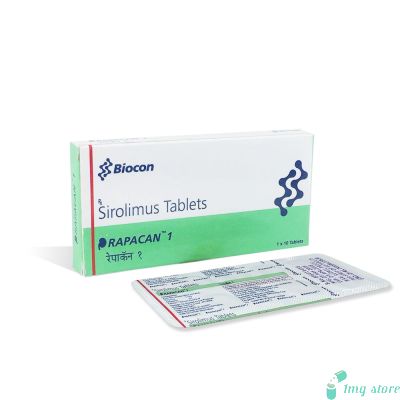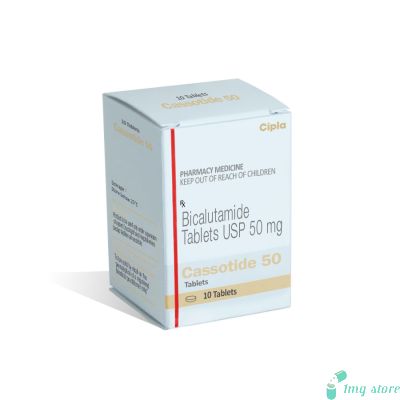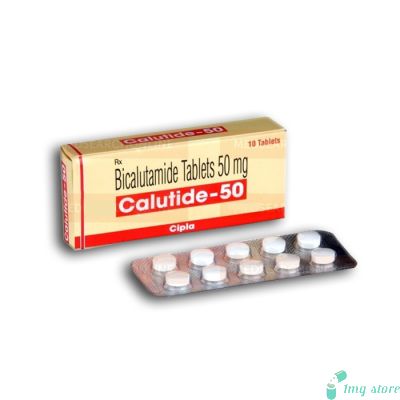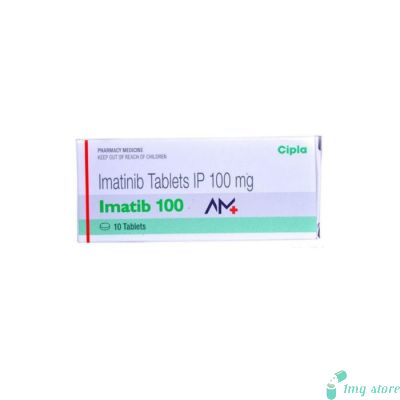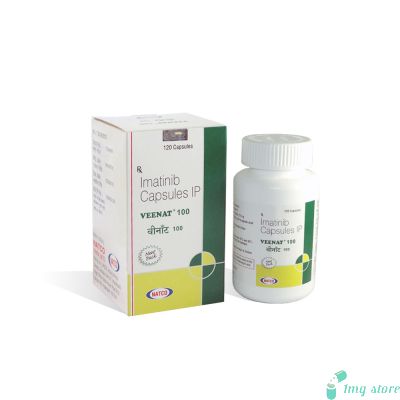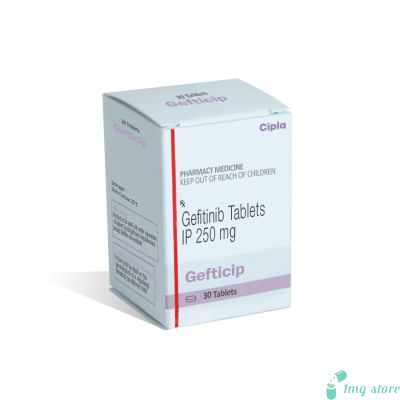Siromus Tablet (Sirolimus)
Sirolimus, marketed under the brand name Siromus, or Rapamune, is a medication that belongs to the class of drugs known as immunosuppressants. It is commonly used to prevent organ rejection in patients who have received kidney transplants.
Information about Siromus Tablet (Sirolimus)
Sirolimus, marketed under the brand name Siromus, is a medication that belongs to the class of drugs known as immunosuppressants. It is commonly used to prevent organ rejection in patients who have received kidney transplants. Sirolimus is also used in the treatment of certain types of cancers and other conditions. Rapamune is another trade name for Sirolimus.
Dosage Information:
The dosage of Sirolimus may vary depending on the specific condition being treated, the patient's age, weight, and overall health. It is essential to follow the prescribed dosage instructions provided by a healthcare professional. Sirolimus is available in tablet form for oral administration.
For the prevention of organ rejection after kidney transplantation, the usual initial dose of Sirolimus is 6 mg, taken once daily. This initial dose is typically given 4 to 12 hours after the transplant surgery. Afterward, the dose may be adjusted based on the patient's response and the side effects experienced. The maintenance dose usually ranges from 2 to 5 mg per day. In the treatment of certain cancers, such as advanced renal cell carcinoma, the recommended dose of Sirolimus may vary. It is typically administered as a single daily dose, ranging from 2.5 to 5 mg. However, the dosage may be modified based on individual factors and the response to treatment. It is crucial to consult a healthcare professional for the appropriate dosage regimen for cancer treatment. It is important to note that dosage adjustments and monitoring of Sirolimus levels in the blood may be necessary to ensure safety and efficacy. Regular blood tests are often conducted to assess the drug levels and make dosage modifications as needed. It is vital to strictly adhere to the prescribed dosage and follow-up appointments with the healthcare provider to optimize the therapeutic outcomes.
Sirolimus Tablet (Siromus) for Sale:
If you are looking to buy Sirolimus tablets, you can visit our website, 1mgstore.com. We offer Sirolimus tablets for sale, ensuring the availability of this medication for those who need it. Please consult with your healthcare professional to obtain a valid prescription before purchasing Sirolimus. Our online platform provides a convenient and reliable source for purchasing medications, including Sirolimus, with a seamless ordering process.
Sirolimus Tablet Price:
The price of Sirolimus tablets may vary depending on the brand, strength, and quantity. At 1mgstore.com, we strive to offer competitive prices for Sirolimus tablets while ensuring the authenticity and quality of the medication. Please visit our website to check the current price and place an order.
In summary, Sirolimus, marketed as Siromus, is an immunosuppressant medication used to prevent organ rejection in kidney transplant recipients. It is also employed in the treatment of certain cancers, LAM, and potentially HUS. The dosage of Sirolimus varies depending on the condition being treated, and close monitoring is necessary to optimize therapeutic outcomes. If you are looking to buy Sirolimus tablets, you can purchase them at our website, 1mgstore.com, while considering the price and consulting with your healthcare professional.
Before taking Sirolimus, it is crucial to consider certain precautions to ensure its safe and effective use.
Allergy: Inform your healthcare provider if you have a known allergy to Sirolimus or any other medications. An allergic reaction to Sirolimus can manifest as rash, itching, swelling, severe dizziness, or difficulty breathing. It is essential to seek immediate medical attention if any signs of an allergic reaction occur.
Medical History: Disclose your complete medical history to your healthcare provider before starting Sirolimus. This includes information about liver disease, high cholesterol or triglyceride levels, diabetes, infections, or a history of cancer. Sirolimus may have interactions or contraindications in individuals with certain medical conditions.
Pregnancy and Breastfeeding: Sirolimus can harm an unborn baby. If you are pregnant or planning to become pregnant, discuss the potential risks and benefits of Sirolimus with your healthcare provider. Sirolimus may also pass into breast milk and could harm a nursing infant. Consult your healthcare provider regarding the use of Sirolimus while breastfeeding.
Vaccinations: It is important to inform your healthcare provider about any recent vaccinations or planned vaccinations before starting Sirolimus. Certain vaccines may have reduced efficacy or increased risk in individuals receiving immunosuppressant medications like Sirolimus.
Grapefruit Juice: Avoid consuming grapefruit juice or grapefruit products while taking Sirolimus. Grapefruit can interfere with the metabolism of Sirolimus, leading to higher drug levels in the blood and an increased risk of side effects.
Key Uilization of Sirolimus Tablet (Siromus):
Organ Transplantation: Sirolimus plays a crucial role in preventing organ rejection following kidney transplantation. By suppressing the immune system, Sirolimus inhibits the body's natural defense mechanisms, reducing the risk of the transplanted organ being attacked and rejected. It is often used in combination with other immunosuppressant medications to achieve optimal outcomes.
Cancer Treatment: Sirolimus has shown promising results in the treatment of certain types of cancers, including advanced renal cell carcinoma. As an mTOR inhibitor, Sirolimus interferes with the signaling pathway that promotes cancer cell growth and division. It helps slow down tumor progression and can be used as part of a comprehensive cancer treatment plan.
Lymphangioleiomyomatosis (LAM): LAM is a rare lung disease primarily affecting women. Sirolimus has been approved for the treatment of LAM to improve lung function and reduce symptoms. It works by reducing the proliferation of abnormal smooth muscle cells in the lungs, leading to improved respiratory function and quality of life.
Hemolytic Uremic Syndrome (HUS): Sirolimus has been investigated as a potential treatment for HUS, a condition characterized by the abnormal destruction of red blood cells, kidney damage, and low platelet count. It may help prevent the recurrence of HUS and improve kidney function, but further research is needed to establish its efficacy in this area.
Common side effects of Sirolimus include:
Sirolimus may cause various side effects, ranging from mild to severe. It is important to be aware of these side effects and promptly inform your healthcare provider if you experience any concerning symptoms.
Mouth Ulcers: Sirolimus can cause mouth ulcers or sores. Maintaining good oral hygiene and informing your healthcare provider about any oral discomfort is crucial.
Increased Risk of Infections: Sirolimus suppresses the immune system, making individuals more susceptible to infections. Inform your healthcare provider if you develop signs of infection, such as fever, sore throat, cough, or unusual fatigue.
Delayed Wound Healing: Sirolimus may slow down the healing process of wounds. Inform your healthcare provider if you have any surgical procedures scheduled or experience delayed wound healing.
High Cholesterol and Triglycerides: Sirolimus can increase cholesterol and triglyceride levels. Regular monitoring of lipid profiles and appropriate management strategies may be required.
Changes in Blood Cell Counts: Sirolimus may cause changes in blood cell counts, including decreases in red blood cells, white blood cells, and platelets. Regular blood tests are necessary to monitor these levels.
Kidney Problems: Sirolimus can have adverse effects on kidney function. Your healthcare provider will monitor your kidney function through regular blood tests.
Lung Problems: In rare cases, Sirolimus may cause lung problems, such as interstitial lung disease or fluid accumulation in the lungs. Inform your healthcare provider if you experience persistent cough, shortness of breath, or chest pain.
Anti-Cancer Effects: Sirolimus, being an mTOR inhibitor, may have Anti-Cancer effects. However, it is important to note that Sirolimus is not specifically approved for the treatment of all types of cancers. Consult your healthcare provider for the specific indications and considerations related to Sirolimus use in cancer treatment.
Life-Saving Drug: Sirolimus can be a Life-Saving medication for individuals who have undergone organ transplantation or require immunosuppression. It plays a crucial role in preventing organ rejection and maintaining the transplanted organ's function.
Some of the concerns you may have about the Siromus Tablet (Sirolimus)
Can Sirolimus be used to treat skin conditions?
Sirolimus is primarily used as an immunosuppressant to prevent organ rejection and in the treatment of certain cancers. While it has shown potential in the management of certain skin conditions like psoriasis and eczema, its use in dermatology is still being investigated. It is important to consult a dermatologist to determine the most appropriate treatment options for specific skin conditions.
Can Sirolimus be used as a standalone treatment for cancer?
Sirolimus, as an mTOR inhibitor, has demonstrated efficacy in certain types of cancers, particularly advanced renal cell carcinoma. However, it is typically used as part of a comprehensive cancer treatment plan that may include surgery, radiation therapy, chemotherapy, and other targeted therapies. The use of Sirolimus in cancer treatment should be determined by an oncologist based on the specific type and stage of cancer.
Can Sirolimus be used in pediatric patients?
Sirolimus has been studied and used in pediatric patients, particularly in the context of organ transplantation and certain rare diseases. However, its use in children requires careful consideration and individualized dosing based on factors such as age, weight, and underlying medical conditions. Pediatric patients should be closely monitored by a pediatrician or specialist experienced in pediatric transplantation or the respective condition being treated.
What should I do if I miss a dose of Sirolimus?
If you miss a dose of Sirolimus, take it as soon as you remember, unless it is close to the time for your next scheduled dose. In such cases, skip the missed dose and continue with your regular dosing schedule. It is important not to double the dose to make up for a missed one. If you have any concerns or questions about missed doses or dosing instructions, consult your healthcare provider or pharmacist.
Can Sirolimus cause birth defects?
Sirolimus has been associated with fetal harm and an increased risk of birth defects when used during pregnancy. It is essential for women of childbearing potential to use effective contraception during Sirolimus treatment and discuss family planning with their healthcare provider. If you become pregnant while taking Sirolimus, promptly inform your healthcare provider. The potential risks and benefits of Sirolimus use during pregnancy should be carefully evaluated and discussed on an individual basis.
Some notable drug interactions with Sirolimus include:
Sirolimus may interact with other medications, altering their efficacy or increasing the risk of side effects. It is essential to inform your healthcare provider about all the medications, supplements, or herbal products you are currently taking.&
Strong CYP3A4 Inhibitors: Medications that inhibit the enzyme CYP3A4 can increase Sirolimus levels in the blood, leading to an increased risk of side effects. Examples of strong CYP3A4 inhibitors include ketoconazole, itraconazole, clarithromycin, and ritonavir.
Strong CYP3A4 Inducers: Medications that induce the enzyme CYP3A4 can reduce Sirolimus levels in the blood, potentially reducing its effectiveness. Rifampin and St. John's wort are examples of strong CYP3A4 inducers.
Vaccines: Some vaccines, such as live vaccines, may have reduced efficacy in individuals taking Sirolimus. It is important to consult your healthcare provider regarding the timing and administration of vaccines while on Sirolimus therapy.
Other Immunosuppressants: Sirolimus is often used in combination with other immunosuppressant medications. However, the combination of Sirolimus with certain immunosuppressants, such as cyclosporine or tacrolimus, may increase the risk of certain side effects. Close monitoring is necessary when using these medications together.
Statins: Sirolimus can increase the blood levels of certain statin medications, such as atorvastatin and simvastatin, which are used to lower cholesterol. This can increase the risk of statin-related side effects, including muscle pain or weakness.
| Manufacturer | : | Zydus Pharma, India |
| Equivalent Brand | : | Rapamune |
| Generic Search | : | Sirolimus |







